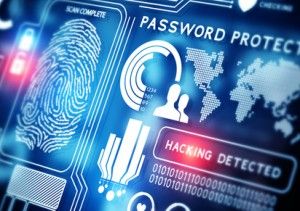
Here are 5 ways to prevent being a victim.
- Keep you software up to date – Installing the top of the line antivirus software is only as good as how often you update it. If it’s out of date, it cannot ward off new viruses that are constantly being created. If you leave yourself vulnerable and a virus gets in, it can corrupt and steal valuable data. This not only applies to your antivirus software but to your browsers as well.
- Identity theft – Along with keeping your antivirus software current, you need to also ensure that you have firewalls installed on your PC to prevent malicious software from getting through. If you make transactions online on a regular basis, you should keep an eye on your credit reports from Equifax, TransUninon and/or Experian. They provide credit monitoring services for $5-$20 which will notify you whenever there is a change in your credit report. Also, you can get a free credit report at annualcreditreport.com.
- Opt-Out of Credit Card and Insurance Offers – Believe it or not, credit bureaus sell your personal information to financial institutions. With this information, the companies get your data, run it through databases and “pre-qualify” you for offers. When they send you offers, they often include a lot of personal information including account information that thieves can use to steal your identity. However, there is a website, optoutprescreen.com, that allows you to remove yourself from these marketing lists permanently.
- Secure your Internet connection – When you are sitting at Starbucks surfing the Internet are you really secure? Not always. Cyber criminals can access your information when you browse the Internet on unsecured networks and in shared locations. It is best to use your own personal hotspot if at all possible.
- Create strong and secure passwords – Identity thieves and cyber criminals love to steal your online account information, and are always looking for new and better ways to get your data. To help ward of these varmints, it is crucial to create strong passwords with numbers, special characters and upper and lower case letters. Some experts have even said to use a phrase as part of your password to help keep you more secure.
Although there is no 100% secure method to keep thieves away, you can surely do your part to make it a bit tougher on these criminals.

